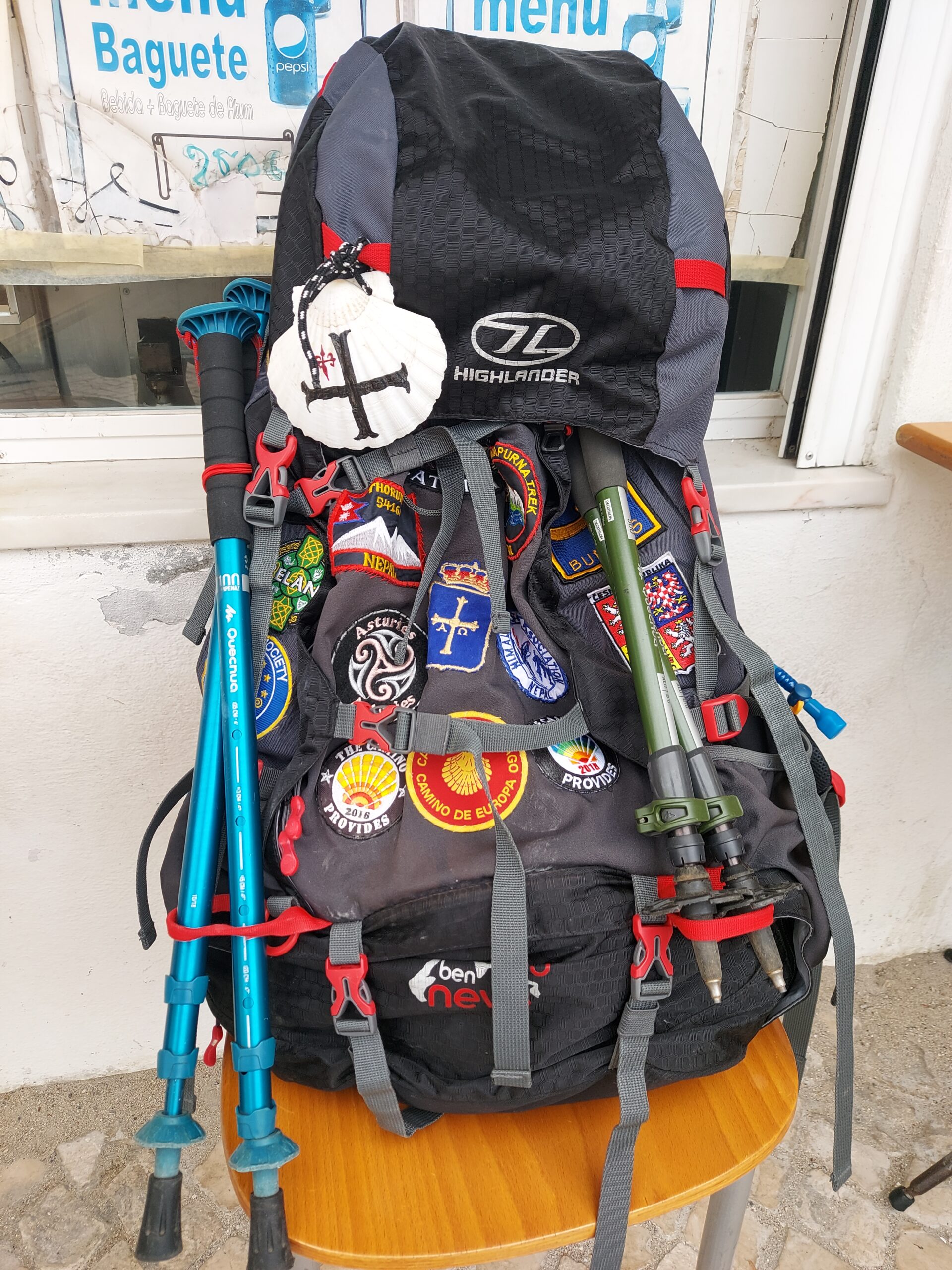With apologies to Shakespeare
We often get asked, “What do we pack for the Camino?“
This very much depends on personal preference but a general word of warning is (save for certain essentials) when in doubt carry less not more! It is a pilgrimage or a trek and everyone en-route throughout the day and evening will be in trekking clothes.
What to pack also depends on whether one would be carrying all his or her belongings on their back or whether they are making use of daily baggage transfers and whether accommodation would be in municipal albergues / dorms or in twin-sharing or single rooms in hotels or pensions. On caminos led by XirCammini the daily baggage service is included and accommodation is generally always in single or twin sharing ensuite rooms.
We are providing below generalsuggestions for the whole trip and a day pack list .
Whole Trip (General)
- 3 or 4 changes of trekking clothes (including the one you would be wearing). You will encounter laundry and drying facilities along the way. Where washing machines are provided pilgrims often aggregate clothes in a washing net. Choose trekking clothes that dry faster since you generally have only 1 night per location. Travel-wash or washing soap can come in handy if laundry facilities are inadequate and you only have one or two items to wash.
- 1 casual set of clothing for last Pilgrim Mass, for evenings and to travel back in if you wish and/or if you have space. Plan clothing in layers (it can be chilly during the early morning or later in the evening).
- Pj’s or nightshirt. Some pilgrims sleep in the same trekking clothes they will wear the next morning but this depends on comfort, preference and space available.
- Protect yourself from sun and rain. Please carry either a poncho or good rain jacket (plus cover for bag) as well as a sun cap. Depending on the time of year and geogrpahy one can encounter both sun and rain on the same trip. Check weather forecasts beforehand but do not be overly reliant on them. Wind directions changes.
- Walking sticks | poles if you are accustomed to using these. Although not a must, they are recommended. PLEASE NOTE: These would have to travel as hold-luggage.
- Trekking Shoes and 1 other comfortable pair of shoes for evening to allow feet to rest and breathe. Flip flops to use in showers where these are communal. On XirCammini trips this is generally not the case since accommodation is mostly on a twin-sharing basis in en-suite rooms.
- A backpack as a day pack while walking and a luggage (10 – 15 kg) for daily transport. If you are booked on cabin luggage only then please restrict your cabin luggage to 10 kg. This can also be sent as hold luggage under the Ryanair rules but please check rules at time of booking / boarding.
- Accommodation will provide linen and towels but it is recommended that you carry at least 1 drip-dry (trekking) towels.
- Tap water in most European locations we travel to is potable. We suggest you carry water bottles/ canteens or a water bladder to fill before each trek. It is not recommended that you carry and re-use disposable, mineral water bottles.
- Torch or night light may be required.
- Ear- plugs if you are a light sleeper. You may be sharing the room with someone who snores.
- On most our trips we do not require sleeping bags since there is no communal sleeping arragnements in dorms or municipal albergues. Bed linen, blankets and pillows are provided throughout o XirCammini treks (with minor exceptions such as the eremo on the Cammino di San Francesco). There have been exceptional situations where a twin room turned out to be a double room. If this happens and one may have to share a double bed we recommend bringing at least a sleeping bag liner.
- Personal medicines/supplements. Always carry some plasters, deep heat/ tiger balm.
- Please also bring with you a large dose of sense of humour and a sense of adventure. Laughter reduces wrinkles.
Day Pack
- Your sun hat / cap, some sun block and also the rain jacket / poncho;
- A small towel and an extra pair of socks. These may come in handy if there is an opportunity to soak one’s feet and change socks (to avoid blisters) half way through a trek;
- Water. Carry at least 1.5 or 2 litres per day;
- 4Walking sticks / poles (not a must but advisable);
- Fruits/nibbles if required.
